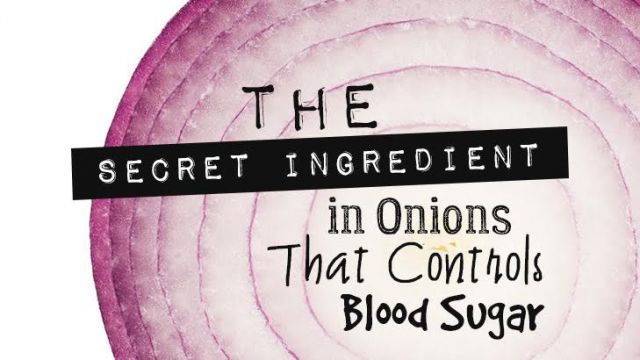
It has long been known that onions are a great addition to a healthy diet, but do you know just how healthy they really are? One compound found in onions has been extensively researched for its potent antioxidant properties, as well as for its potential to combat diabetes and cancer.
The compound in question is quercetin — a flavonoid antioxidant that has powerful anti-inflammatory characteristics. This anti-inflammatory action is linked to a wide variety of health benefits. The following are just two of the many.
Quercetin may have significant benefits for diabetics
During the course of a 2011 study published in the journal Nutrition Research and Practice, researchers tested the blood sugar lowering effects of quercetin on “animal models of diabetes mellitus.” The researchers found that quercetin “significantly reduced both plasma glucose and blood glycated hemoglobin compared to controls without significant influence on plasma insulin.”
On their overall results, the study authors concluded:
“QE [quercetin] could be effective in controlling fasting and postprandial blood glucose levels in animal models of DM [diabetes mellitus].”
Earlier studies have also found that quercetin may help to combat diabetes. For one example, a 2004 study published in the journal Comparative Biochemistry and Physiology tested the effects of quercetin on rats with chemically induced diabetes. On their results, the authors wrote:
“It is concluded that quercetin, a flavonoid with antioxidant properties brings about the regeneration of the pancreatic islets and probably increases insulin release in streptozotocin-induced diabetic rats; thus exerting its beneficial antidiabetic effects.”
While these studies were performed on animals and not on humans, and more research needs to be done, the potential of quercetin for the regulation of diabetes is certainly promising.
Quercetin is a strong candidate in the fight against cancer
Along with potentially controlling blood sugar, quercetin has been studied for its role as an anticarcinogenic substance. On this subject, the authors of a 2000 review published in the journal Alternative Medicine Review wrote:
“A number of its actions make it [quercetin] a potential anti-cancer agent, including cell cycle regulation, interaction with type II estrogen binding sites, and tyrosine kinase inhibition. Quercetin appears to be associated with little toxicity when administered orally or intravenously. Much in vitro and some preliminary animal and human data indicate quercetin inhibits tumor growth.”
How to prepare your onions to enjoy maximum quercetin
For a 2000 study published in the journal HortScience, researchers cooked onions by various methods and then measured their quercetin concentration. On their results, the study authors explained:
“Results of cooking showed that sautéing produced an overall 27 percent gain in quercetin concentration (significantly higher than the fresh control), baking produced an overall four percent gain in concentration (insignificant from the fresh control), while boiling produced an overall 18 percent loss in quercetin concentration (significantly lower than the fresh control).”
While all onion preparations can be healthy (unless of course you deep fry or use less-than-healthy ingredients), it seems that sautéing them in a bit of organic coconut oil is a great option. Or, you can serve them up fresh on your salads. If you love onion soup, don’t fear: The quercetin that comes out of the boiled onion ends up in the water, so you’ll be enjoying an abundance.
Other benefits of onions
On top of their rich quercetin content, onions contain a wealth of other nutrients. These include vitamins B1, B6 and C, as well as minerals such as copper, folate, manganese, phosphorus and potassium. So, there are a great many reasons to get more into your meals!
What’s your favorite healthy onion preparation?
—Tanya Rakhmilevich

